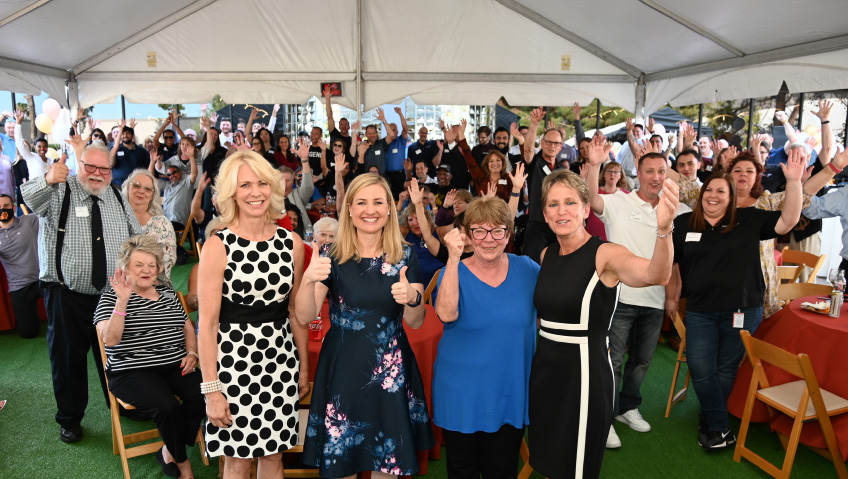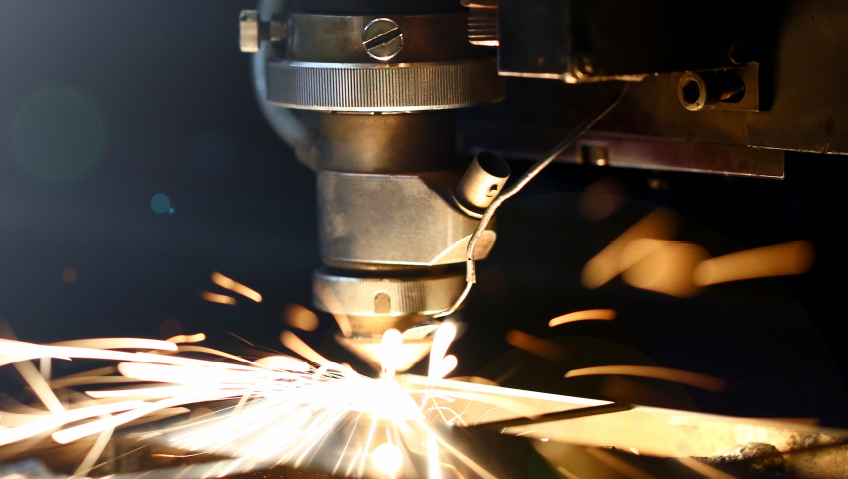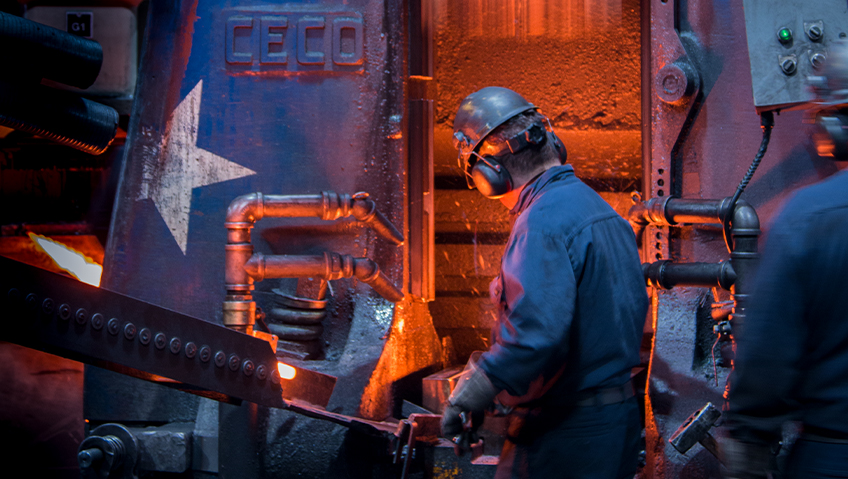Spirit Electronics is a value-added supplier of high-reliability components and superior supply-chain solutions for the aerospace and defense sectors. The veteran-owned, woman-owned business has been growing steadily since we profiled the company in December 2019, so we sat down with owner and CEO Marti McCurdy again this month to hear the latest news and developments.
Spirit Electronics recently acquired Insight Analytical Labs, which has been in business for 30 years, in order to add new offerings—including destructive physical analysis (DPA)—to its turnkey semiconductor supply chain services. The team is always looking to advance its end-to-end capabilities, so the acquisition just made sense. “That is a goal for us to always increase what we call the ecosystem,” McCurdy says. “Our customer base is always looking for DPA, so we decided to buy a lab.”
In addition to DPA, the lab’s electronic analytical services include failure analysis, reverse engineering, and IP litigation support.
The lab is based in Colorado Springs, Colorado, and the same experienced team will remain. Spirit Electronics has had external auditors qualify the Colorado Springs facility, ensuring that all operations meet the company’s robust quality management system and lab suitability.
Spirit Electronics has also been working hard to expand its ASIC programs in order to better serve customers. Short for Application-Specific Integrated Circuits, these programs take multiple IC functions and design, manufacture, and package a single IC to handle all of it. “We’re always moving more and more into manufacturing,” says McCurdy, “so our ASIC opportunities are becoming a big piece of our offering.”
Spirit is “the only exclusive distribution channel or access channel to have foundries through Texas Instruments,” she continues. “So we are working with them on allowing the outside world to have access to the mature analog 65 nanometer and larger technology nodes for ASIC mixed signal and analog devices that our aerospace and defense market uses. Our foundry access provides supply chain security for our customers by allowing them to have products made fully in the USA.”
The advantages of creating an application-specific IC are clear. “That secures the supply chain for the customer,” McCurdy explains. “They’re not waiting and relying on that supply chain to deliver.” This is particularly critical in an industry where deliveries can take as long as 140 weeks. “That’s three years, and you really cannot plan a program if you can’t get parts in your hands for three years. An ASIC allows you to own your supply chain and IP. The fact that we will design it for you, we will run the fab foundry service through TI or your preferred foundry, we will provide the assembly, test, and the qualification, gives any customer a lock on their product and supply chain for life on that component.”
An ASIC gives the customer control regardless of a supplier’s capacity—or any unforeseen situation, such as COVID, that negatively impacts the supply chain. “Now they’re not waiting on somebody to increase capacity; there’s nothing that’s restricting them. They own it. The price will be fixed. It will always be their IP and that removes all the strangleholds, all the price increases, all of the delays from them, and they literally can move into production in their systems.”
With so much to offer, it comes as no surprise that Spirit Electronics has been expanding rapidly. “We’ve outgrown our building,” McCurdy shares, and this has created new challenges due to fierce demand in the area. “We’re looking for a building here in Arizona. The challenge is Arizona is in such a tech boom right now that, within the Phoenix city limits where we want to stay, there are very few buildings that meet our criteria.”
The good news is that business is booming within the region. “The tech industry here in Arizona is just on a roll, especially Phoenix itself. The city proper is, for the fifth straight year in a row, the largest growing city in the U.S. at over 200,000 people per year coming into Phoenix only—not the Phoenix metro area, but Phoenix city.”
The company is taking full advantage of this tech boom. “We have been pursuing the CHIPS Act money simply because we are a very good candidate for that to help us expand quicker than we could from just our organic growth,” McCurdy says. “We are almost doubling every year. So the fact that we need a building in short order is pressing.”
The team is committed to staying in Phoenix, regardless of the challenge to find available space. One factor in this decision is the strong relationships it has built in the area. “Our desire is to stay within the city limits of Phoenix,” says McCurdy. “We have a great working relationship here with the mayor, the city, the city council, the developers. They’re very tied to us, very encouraging for us to stay within the city limits.”
The industry’s ongoing supply chain constraints are a key reason the company is seeking a larger building. “A lot of our customers now are going into storage contracts with us where we secure their pipeline of material, either for an immediate build or a build in the future,” explains McCurdy. “We have programs here that are in excess of five years, whereby we’re pipelining material to be guaranteed to be available when they need it.”
Customers taking advantage of Spirit Electronics’ storage capabilities include businesses in sectors ranging from commercial aviation to aerospace and electric vehicles. “They’re willing to put [materials] on their shelf so they have it as a guarantee.”
As Spirit Electronics grows, the team remains committed to positively impacting the community—take the location chosen for the business, for instance. “Currently, the building that we’re in is in a HUBzone, which is a Historically Underutilized Business zone,” McCurdy shares. “And interestingly enough, it has kind of raised the bar in our local business community here, where they’re hopefully going to be able to elevate this section out of the HUBzone. The growth here has been pretty astronomical. The two buildings that we are looking at are also in a HUBzone, so maybe we can have a positive impact there for the city and help to elevate that community as well.”
The company also runs a non-profit organization called Sprit Gives. “We support our local children in this community,” says McCurdy. “We do activities with them every month,” many of them through the local Sunnyslope Community Center. “We have families that we sponsor there. It’s been super fun.” Last month, for instance, they built robots together. The hope is to make a positive, lasting impact. “We’re in it for the long haul to help the community be revitalized.”
Looking ahead, the team is eager to continue growing by offering much-needed services to the industry. “The majority of what we call domestic assembly and test, which is true back-end capabilities, probably 90 percent of it is offshore,” McCurdy says. “So with the support of the CHIPS Act, that’s what we’re bringing onshore.” The company already offers this at the prototype level, “but we’re looking to grow that into large scale production; that will escalate Spirit. We have a strong backlog already but we’re looking to launch into a much bigger platform, bigger growth than we can achieve organically.”
Major names within the industry have built, or are planning to build, foundries within the Phoenix area that produce wafers, so Spirit Electronics’ future growth plan makes good sense. “It will make a big impact on the local community because we have so many foundries here,” McCurdy says. “If you have all these wafers, what are you going to do with them? You still have to ship them… to get them packaged and tested. So we’re going to offer that here with the aim of growing it into a fairly commercialized capacity.”
Armed with a proven track record—and an ongoing commitment to the community—Spirit Electronics is certainly on track to continue making a significant, positive impact both locally and on the industry as a whole.
Spirit Electronics is an Authorized Distributor for Intelligent Memory and Radiation Test Solutions.






